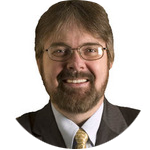
When Tommy Thomason invited me to spend a couple of days at the Texas Center for Community Journalism a few months ago, I was quick to answer. I don’t work in Texas nearly as much as I used to, and I was ready go back to my old home state. (I attended college in Texas back in the day.)
Housed in the Journalism Department at Texas Christian University, TCCJ reminds me a lot of the University of Tennessee Newspaper Institute, which I directed for 20 years. Working with Tommy and his group was like going home in more ways than one.
Tommy explained attendance would be limited. Thirty registrants, all from Texas newspapers, would be allowed into the session. Only one per newspaper would be admitted. The group would be primarily publishers. I was pleased to learn the class filled the day it was announced.
Tommy explained that my assignment was to share as much information as possible in the time allotted, which would help these publishers grow their newspapers. With a limited number of class members, attendees would benefit by being full participants in the session. I wouldn’t be the sole instructor. These students would learn from each other.
A few weeks before the December event, I heard from Tommy again. He wanted to offer an experience the attendees wouldn’t soon forget. Who could be invited, he asked, to warm up the crowd and share some real-world experience? He wanted someone who was a walking success story in the community-newspaper business.
It took me about two seconds to respond, “Joey Young, from Kansas.”
I remember when a 20-something-year-old Joey Young first approached me at a Midwest newspaper convention five years ago and asked if we could visit. He was concerned about the number of papers in his area being bought by venture capital groups and the impact it was having on quality journalism. He thought he had a better approach to community journalism.
On that Thursday at TCU, Joey shared his experience from that first paper. He went on to explain how he started additional papers and purchased a couple of others.
You have to understand where Joey comes from to really understand the magnitude of his accomplishments. He wasn’t a newspaper heir. He didn’t come from a family of newspaper
owners.
During his presentation in Texas — his first for an out-of-state group — he used the term “shoestring” several times. In retrospect, he told the group, he would have had an easier time if he had “fifty thousand dollars in the bank” when he began, but he didn’t.
Now, with six publications, Joey is a household name in the newspaper business in Kansas and surrounding states. He shared his secrets with the group in Texas.
Above all else, the secret to the success of Joey’s papers is quality journalism. Joey knew he had to have rock-solid journalists to have a successful newspaper, and he shared how he hired his first away from a much larger paper and how that decision propelled the success that followed.
Joey doesn’t heap praise upon himself; he spreads it among his staff. He was quick to share that much of his success is thanks to staff members from the community. There’s no centralized editorial content. “Local” is everything to Joey’s newspapers, and it shows.
He discussed the importance of having an advertising manager who is well-known and respected in the community. “That makes all the difference,” Joey told the group.
Asked about his circulation staff, Joey turned a few heads when he answered, “Everyone at all of my papers is on the circulation staff. When one of us is at a restaurant and a subscriber complains that they didn’t receive a paper this week, we ask them to wait and run back to the office to get one for them.”
Joey explained that all staff members are connected to the circulation database on their phones and can check to see the status of a customer’s subscription on-site when asked. They can also take subscriptions without forcing the reader to first call the office.
Speaking of calling the office, there are no auto-attended phones at Joey’s papers. When readers call, they get a real, live person on the phone who can answer questions, take orders and handle any issues that come up.
My son, Zac, is in a popular rock band these days. A few weeks ago, he came home from a concert and I asked how things went.
“You know,” he told me, “there are two kinds of warm-up bands. There’s the kind that gets everybody energized and excited about the main act, and there’s the kind that puts people to sleep and makes them want to go home before the headliner even begins.”
He went on to tell me, “Tonight, our warm-up band had everybody tired and ready to go home before we even took the stage.”
I’m lucky. I speak at a few conferences most months, and can’t remember the last time I had an uninterested audience.
Tommy is a wise man, and he knew the right “opening act” would make my follow-up go even better. Joey Young was the right choice, and his advice was well received:
- Keep everything local, from writing and editing, to sales and circulation.
- Hire the right staff and treat them as partners.
- Put the bulk of your emphasis on quality journalism, and sales will follow.
Over the next few weeks, I’ll be in places like Wisconsin, Wyoming and Kentucky. If things go as they usually do, regardless of the topics I’m asked to cover, publishers and other journalists will stop me to ask what secrets I have to help them grow their papers.
There are no secrets. It’s the same recipe successful newspapers have always followed. Thanks, Tommy, for inviting me to Texas.
